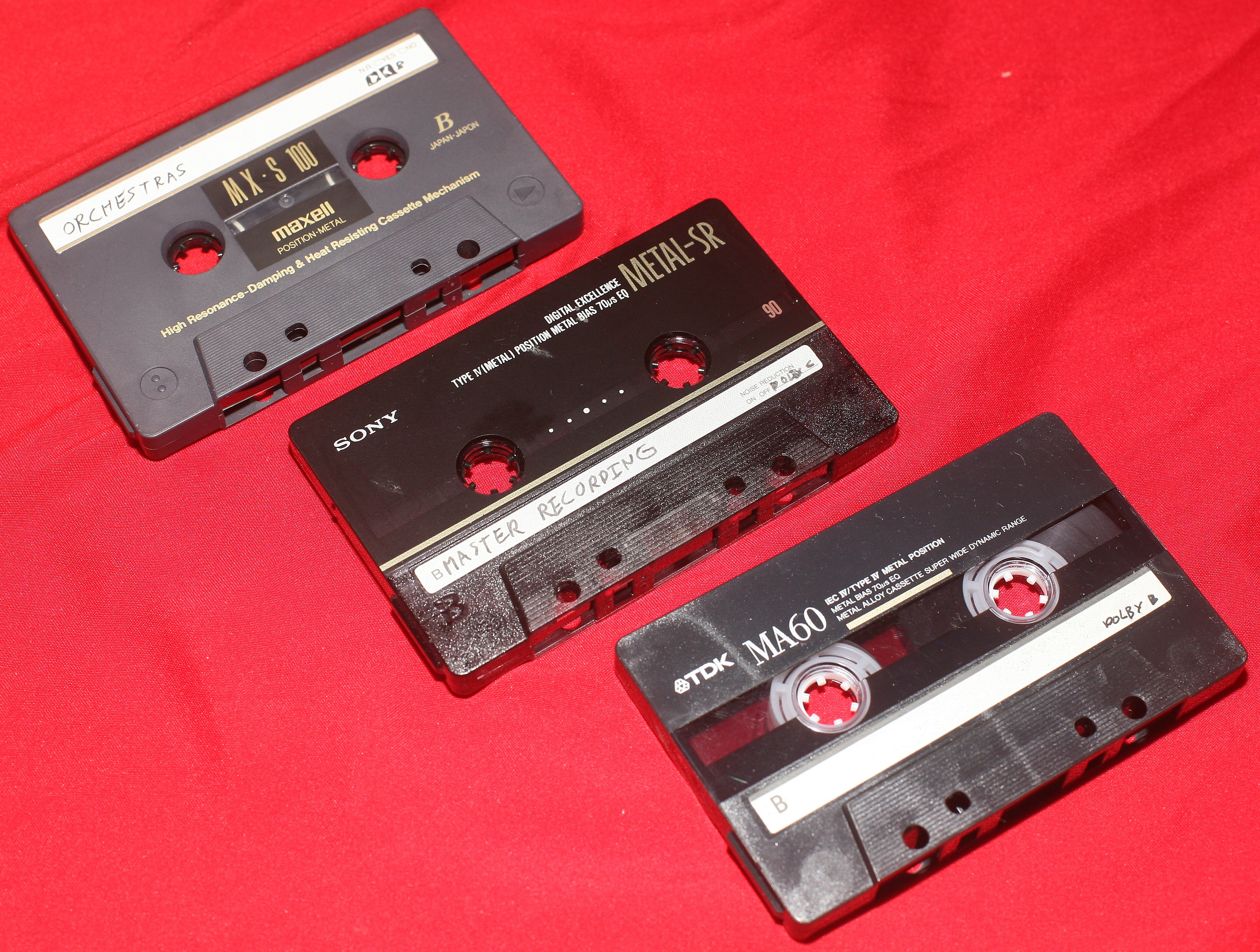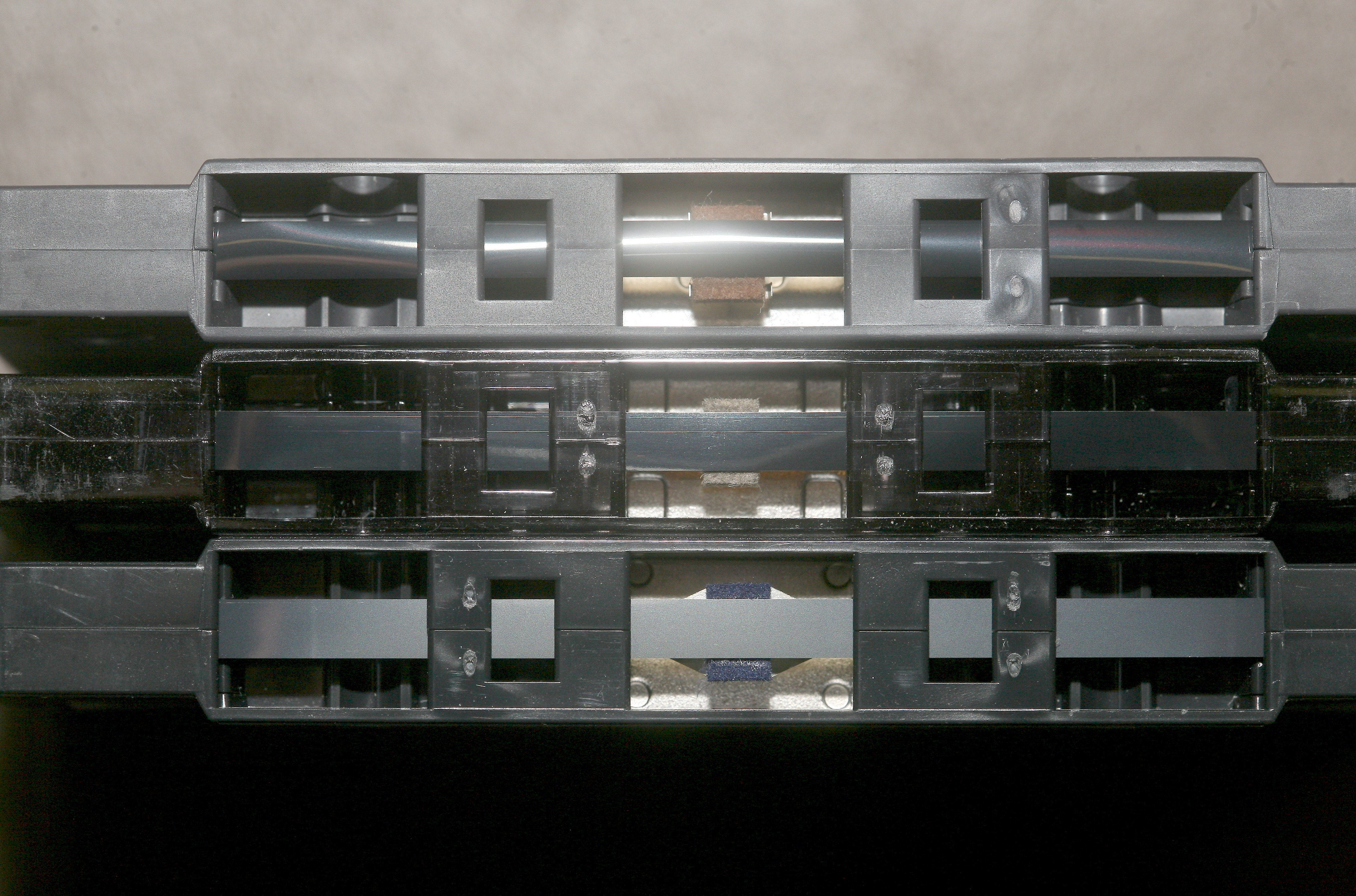Techmoan's latest video in his digital compact cassette series got the lion kingdom remembering the great struggle to record decent, portable audio in the old days. It was incredibly expensive to go from just playing tapes to recording high quality audio in a portable way. If only lions knew then what they knew now about electronics.
An ordinary playback only walkman of the early 90's could have been hacked to record better quality than the recording walkmans of those days by whacking on a daughter board. The head could have bypassed all the included circuits, with just the transport being kept intact. It would have needed a microphone preamp, a bias generator, a way to EQ the input sound, a way to modulate the bias, & some VU meters. Erasing would have been a 2nd pass. It would need a way to select playback, recording, & erase modes.
The journey would begin by capturing the head signals of a full sized deck while recording test tones on metal tape. Only metal tape would be justified. The erase head signal, bias voltages, bias frequency, modulated voltages, & transfer function of the EQ could be measured. It wouldn't match the walkman head, but it would be a starting point. Tones could then be recorded on the walkman & played back on the full size deck to fine tune the settings.
For better sound quality, the tape speed could have been increased & an auto reversing walkman could have been used. The 4 heads on the auto reverser could have been driven as 2 tracks across the entire 1/8" of tape. The mane problem is walkmans had pretty bad flutter, so tapes would have to be played back on a decent deck. The extra cost of an auto reverser wasn't worth it.
An oscilloscope would have been required, which the lion kingdom didn't have. Lions might have been able to get one out of a computer soundcard or fabricate a test circuit to visualize the bias. It's absolutely not worth doing now as anything but a museum piece.
The only remote reason lions could justify it is a kind of historical investigation, to determine if it really was possible 30 years ago or if the sound from those days really was the best possible. If the effort failed or was too hard, the lion kingdom could be satisfied in knowing it got the best sound quality possible, for the time. Helas, the historical investigation is too expensive. It would require a large order for the op-amps, pots, power supply. Another problem is the lion kingdom's only complete tape deck which could play back the finished product, the mighty RS-BR465, has a broken part & there are no spare parts.
It's pretty obvious that low level tape electronics were just too obscure in those days. It would have taken a mentor. Times have changed. Even though the goo tubes are 20 years after the death of tape, there are still a small number of videos showing how to make tape recorder electronics.
There are also fragments of schematics in still photo form, but all using discrete components. Lions would use op-amps as much as possible.
It's amazing that walkman tape players are still sold. They're vastly inferior quality & manely bought by people who want to hear audio books or some rare material that isn't available online. They want to transfer it to mp3 but don't want to pay for a full tape deck.
There is 1 guy in the world who would do this project. 1st name: Tech. Last name: Moan.
Every time someone does a completely useless project like using a 1930 teletype as a Linux terminal, building a toy record player, restoring a vacuum tube radio, fixing the video on a Commodore 64, it's a justification to do it. A big question is whether it would be an analog circuit using period components or digital using a microcontroller. It would be so much simpler to use a microcontroller & all the modern enhancement boards for commodore 64's use modern components. There would be an emphasis on making it as small as possible, to keep it useful for bootlegging.
Another reason for doing it would be to learn more about analog. That eliminates the microcontroller.
Another problem occurs when searching for metal tapes. They're not manufactured anymore, so any experiments would have to overwrite old tapes. It's not unthinkable, since most of the recordings are junk. New old stock is being sold off for $30 per tape. The metal tape lions got 30 years ago was the last tape produced. Lions used TDK MA, Maxell MX, & Sony Metal SR. Seem to remember they were $5, back in the day.


Any experiment would be done without noise reduction. Listening to metal tapes on the goo tubes, without noise reduction, the noise is horrific.
Already, it's obvious that a hacked walkman wouldn't be anywhere near usable quality, by today's standards. It would be better than what we had 30 years ago, but it would still sound awful.
 lion mclionhead
lion mclionhead
Discussions
Become a Hackaday.io Member
Create an account to leave a comment. Already have an account? Log In.
>Every time someone does ...
I think mixing old and new technologies happens so often here that there should be a taxonomy for such efforts.
1. The goal is to restore the original function, like restoring a good looking ancient radio.
a. with original or of that era components
b. with some or all newer substitutes
I guess my Beckman plasma display clock (https://hackaday.io/project/160958-restoring-a-beckman-neon-display-clock) falls into 1a.
Some 1b projects will go to great lengths to get verisimilitude to the old behaviour. I remember an Elektor project which was a transistor circuit to simulate the hum and fade-in as a valve radio warmed up.
2. Reuse some or all of the old components for a different function.
Project under this category would include hacking the old circuit to do something else, or putting a new circuit in an old case. The digital dice in a multimeter case project comes to mind. Volt/Ammeters for clocks is another. I have a nixie panel meter that I'd like to turn into something, don't know what yet.
3. Emulate an old design
Those projects to recreate classic computers belong here.
4. Mix old and new in a way that was never done before
Nixie tubes in wristwatches, teletype as as SMS display, that sort of thing. Just because.
Are you sure? yes | no